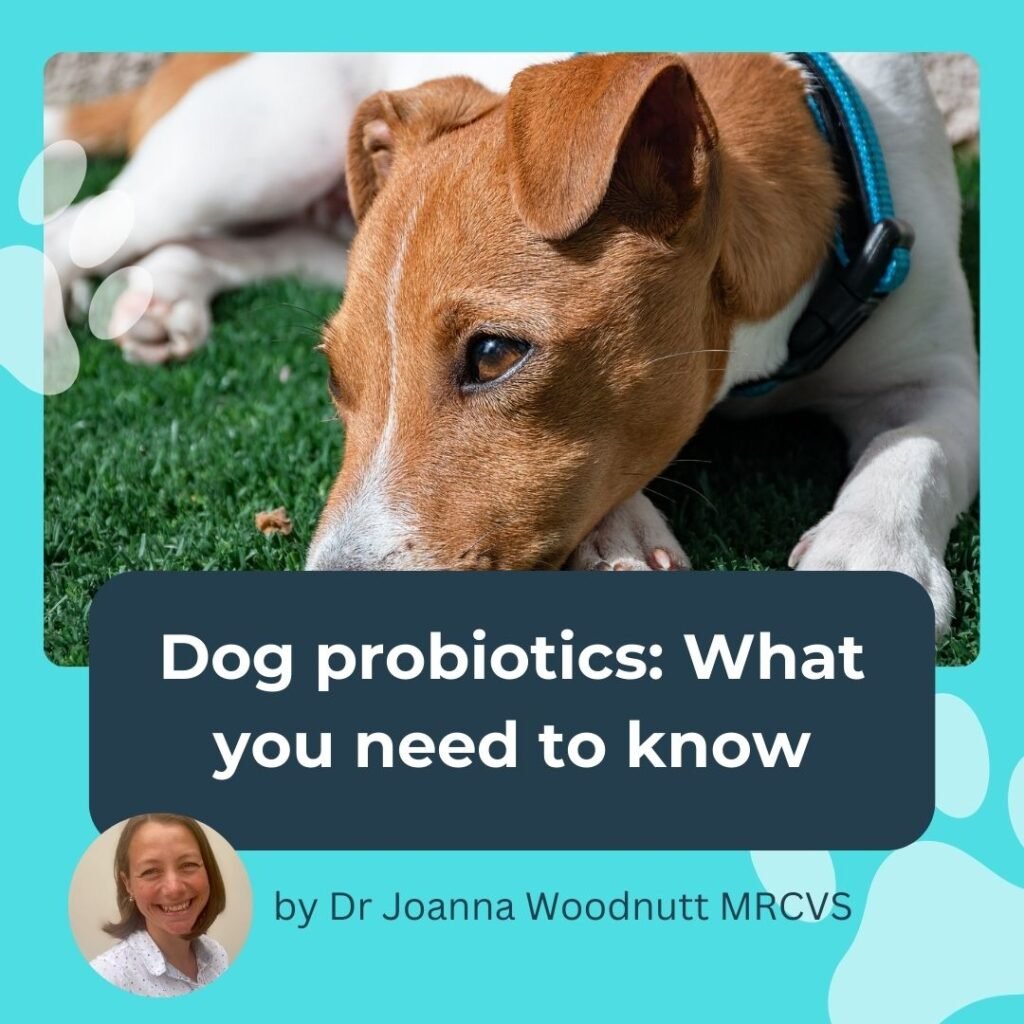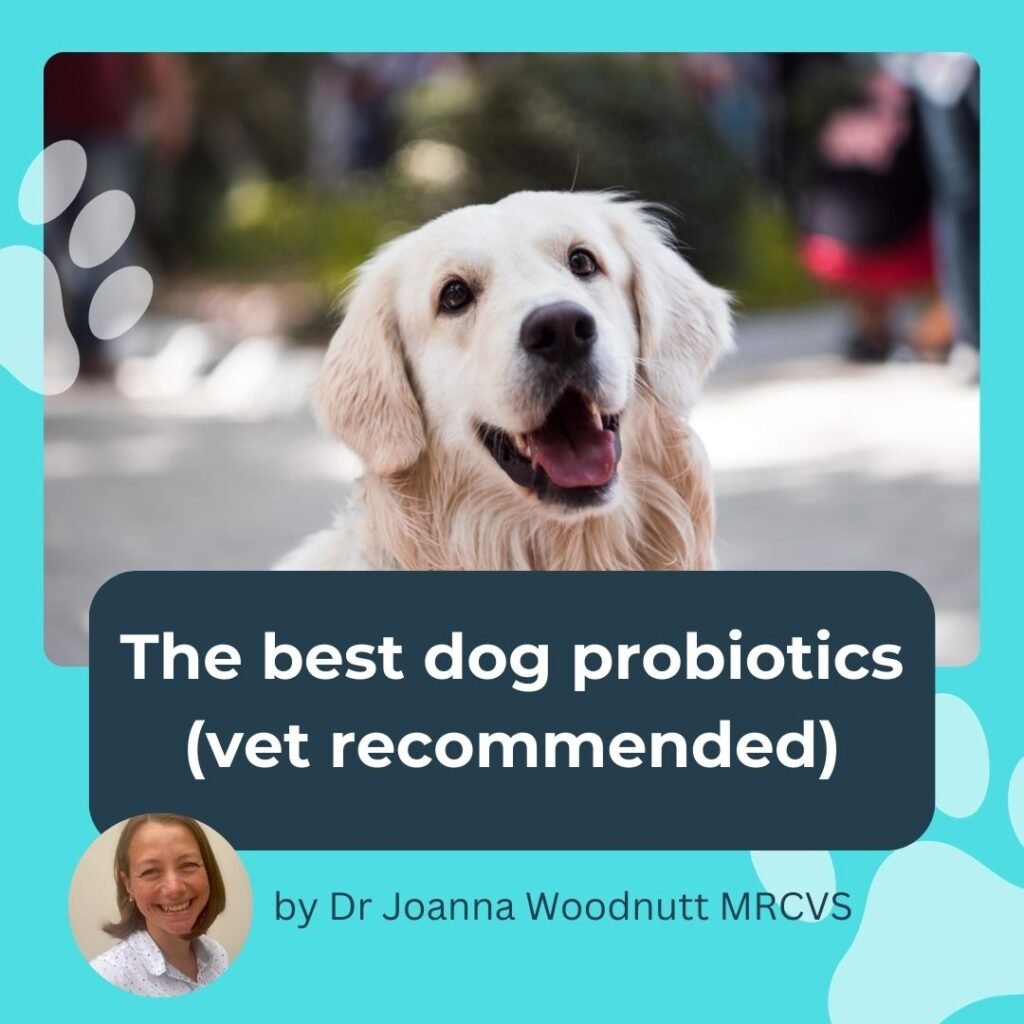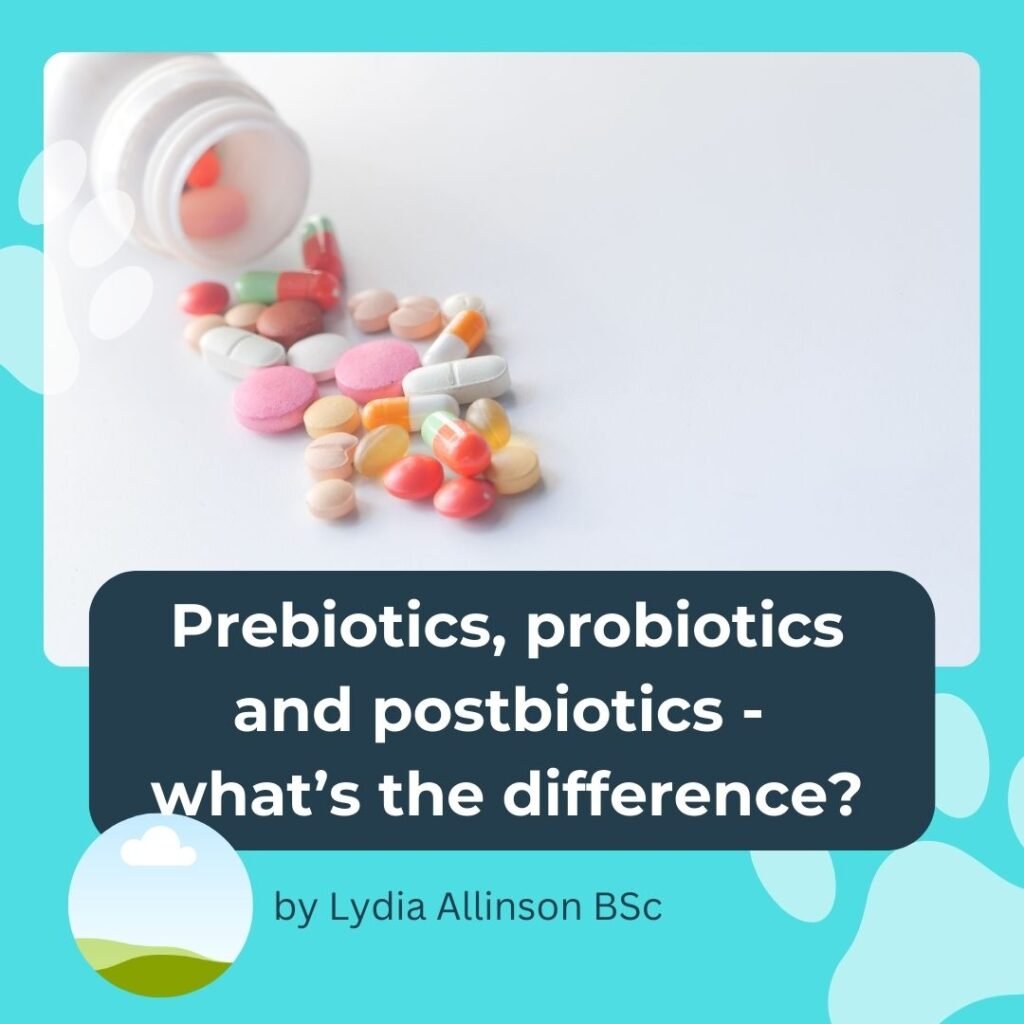The 10 Signs Your Dog Needs Probiotics – Vet Explains When to Supplement
Not sure if your dog needs probiotic support? Dr Woodnutt gives 10 signs your dog needs probiotics, and explains what to look for.
Probiotics have become a popular supplement for dogs, and for good reason! These beneficial bacteria play a vital role in your dog’s overall health, supporting digestion, immunity, skin condition, and even mood. If your dog is experiencing certain symptoms, their gut microbiome could be out of balance—and probiotics may help get things back on track. But how do you know if your dog actually needs them? In this guide, we’ll explore the top signs that your dog needs probiotic supplements.
1. Your Dog Has Diarrhoea
Diarrhoea is one of the clearest signs that something is off in your dog’s gut. Both sudden (‘acute’) and long-term (‘chronic’) diarrhoea can be signs that your dog needs probiotics. Probiotics help restore beneficial bacteria in the gut, reducing inflammation and supporting healthy digestion.
2. Your Dog Has Vomiting, Rumbling Belly, or Flatulence
If your dog’s stomach sounds like a washing machine after meals or they regularly suffer from vomiting or excessive gas, this could be a sign their gut microbiome needs support. Bloating, flatulence, and stomach gurgles (known as borborygmi) often indicate difficulty digesting food properly. Probiotics can help regulate digestion and reduce these uncomfortable symptoms.
3. Your Dog Likes Eating Non-Food (Pica)
If your dog is eating things they shouldn’t, this is a sign your dog needs probiotics. Dogs that eat soil, grass, or even faeces (a behaviour known as coprophagia) may be trying to balance their gut bacteria. While pica can sometimes be linked to nutritional deficiencies or behavioural issues, gut dysbiosis is another possible cause.
Supporting gut health with probiotics may help curb these strange eating habits by restoring the right balance of bacteria in the digestive tract.
4. Your Dog is Overweight or Underweight
Your dog’s gut microbiome influences their metabolism, nutrient absorption, and even hunger signals. If your dog struggles to maintain a healthy weight – whether they gain weight easily or seem too thin despite eating well – it could be a sign they might benefit from canine probiotics.
5. Your Dog Has Skin Problems and Excessive Itching
Many skin conditions, including itching and infections, can be linked to gut health. That’s because the gut and skin are closely connected—an unhealthy gut microbiome can trigger systemic inflammation, leading to allergic reactions or skin issues. If your dog has recurrent skin problems, this can be a sign your dog needs probiotics. Probiotics help support the immune system, strengthen the gut barrier, and reduce inflammation, which can, in turn, improve skin health.
Psst – if your dog has skin allergies, our pet owner e-learning course might help! -> Go to course
6. Your Dog is On or Has Recently Finished Antibiotics
Antibiotics are sometimes necessary to fight infections, but they don’t discriminate between good and bad bacteria. This means they can wipe out beneficial gut bacteria, leaving your dog’s microbiome unbalanced.
After a course of antibiotics, many dogs experience loose stools or digestive issues. Giving your dog probiotics alongside and after antibiotic treatment can help replenish the good bacteria and support gut recovery.
7. Your Dog Has Signs of Stress or Anxiety
Did you know that your dog’s gut health can influence their mood? The gut and brain are directly connected via the gut-brain axis, meaning an imbalance in gut bacteria can contribute to anxiety, stress, and even behavioural issues.
Studies suggest that certain probiotic strains can help reduce stress-related behaviours by supporting a healthier gut-brain connection. If your dog is anxious, fearful, or prone to stress, probiotics might help improve their overall well-being.
8. Your Dog Has Recurring Infections
A well-functioning immune system starts in the gut. If your dog frequently suffers from ear infections, urinary tract infections (UTIs), or other recurring illnesses, their gut microbiome may not be providing the immune support they need.
Since around 70% of the immune system is located in the gut, ensuring a healthy balance of bacteria can help strengthen immunity and reduce the frequency of infections.
9. Your Dog Has an Immune-Mediated Disease
If your dog has an autoimmune condition, like IMHA, IMTP, or inflammatory bowel disease (IBD), probiotics might help to support them. Studies have shown that dogs with immune-mediated disease have an altered gut microbiome. Probiotics can replace normal populations in the gut and help modulate immune responses, potentially reducing inflammation and improving symptoms in dogs with immune-mediated diseases.
10. Your Dog is Starting NSAIDs
Non-Steroidal Anti-Inflammatory Drugs (NSAIDs) like meloxicam (Metacam, Arthrocam, Rheumocam) and carprofen (Rimadyl, Carprieve) are commonly prescribed for pain relief, particularly in older dogs with arthritis. However, NSAID use can disrupt gut bacteria and irritate the stomach lining, leading to digestive issues – diarrhoea is a common side effect of NSAIDs. In one study, there was less diarrhoea in NSAID dogs also receiving probiotics, but the difference was not considered statistically significant due to the small sample size. That said, probiotics can help protect the gut, reducing the likelihood of stomach upset and supporting overall digestive health while your dog is on these medications.
BONUS: Your Dog’s Microbiome Test Says They Need Probiotics
Dog microbiome testing is becoming increasingly popular, providing insights into gut health and bacterial imbalances. If you’ve had your dog’s microbiome tested and the results suggest a need for probiotics, it’s a clear sign to start supplementation.
For more information about dog microbiome testing, read our article.
Conclusion
If your dog is showing any of these signs your dog needs probiotics, you could help improve their gut health and overall well-being with a vet-recommended probiotic. If you’re unsure where to start, check out our guide to the best dog probiotics to find the right option for your pup. Don’t forget to talk to your vet first to rule out more serious disease!
Please remember, microbiome science is still very new, and scientific evidence for an improvement in any of these signs listed is sparse. That said, probiotics are unlikely to do your dog harm – especially if you buy good products – and some evidence suggests they may help.
- Why Do Dogs Sleep So Much? A Vet Explains What’s Normal (and What’s Not) - March 27, 2025
- 10 Signs Your Dog Needs Probiotics – Vet Explains When to Supplement - March 14, 2025
- The dog gut microbiome explained (by a vet) - March 10, 2025



